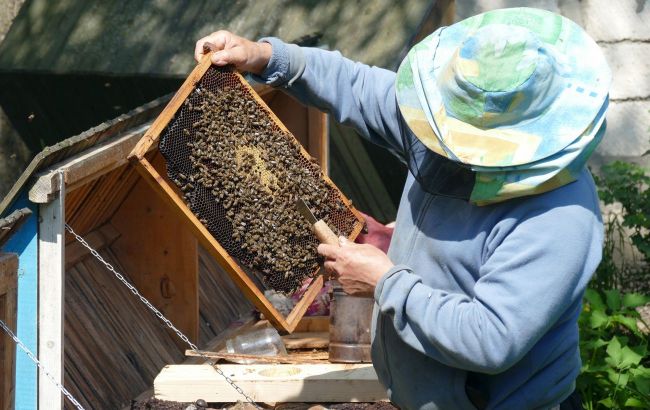Ukraine war threatens bees - experts list it among global ecological risks
 Bees face deadly danger (photo: Ukrinform, Yurii Rylchuk/GettyImages)
Bees face deadly danger (photo: Ukrinform, Yurii Rylchuk/GettyImages)
The war in Ukraine has become one of the biggest emerging threats to bees worldwide and may critically impact their survival within the next decade. Insects are also in danger from microplastics and street lighting, reports The Guardian.
What is the problem
The report "Emerging Threats and Opportunities for Conservation of Global Pollinators" by the University of Reading lists 12 of the most serious challenges for pollinators. One of them is armed conflict. For example, because of the war in Ukraine, countries are forced to reduce the diversity of cultivated crops, which deprives bees of varied food sources.
Other threats include microplastics in hives (found in the majority of 315 tested honeybee colonies in Europe), artificial lighting, which reduces pollinators' nighttime visits to flowers by 62%, and polluted air, which harms their ability to reproduce and survive.
Also, hives are contaminated by agricultural antibiotic residues. They affect bee behavior, including lowering their activity. Pesticides are no less dangerous: even when "safe" standards are formally observed, in combination with other substances, they can have a toxic effect.
"This is not just a conservation issue. Pollinators are central to our food systems, climate resilience, and economic security. Protecting pollinators means protecting ourselves," emphasized Professor Simon Potts, the lead author on the report.
Possible solutions
Researchers are calling for:
- Strengthening legislation against antibiotic contamination.
- Switching to electric transport to reduce the impact of emissions.
- Creating floral environments within solar power plants.
- Breeding crops with better pollen and nectar.
"It will take effort from everyone to address these threats. Individual actions like providing food and nesting areas in our own back gardens can help in a big way," added co-author Dr. Deepa Senapathi.
Earlier, we wrote about the unique properties of bees and honey: why honey can last forever, how bees produce it, what unusual species exist, including cuckoo bees, and what role honey may have played in the evolution of the human brain.
Previously, we also explained why bees die after stinging—due to the structure of their stinger, which gets stuck in the skin and is torn out along with internal organs. Bees sting only in case of threat, and sudden movements, smells, dark clothing, and weather conditions may trigger their aggression. Unlike bees, wasps do not die after stinging.

